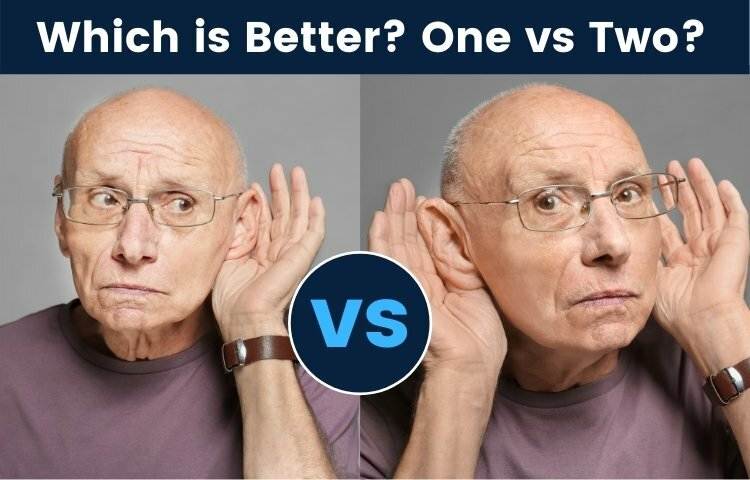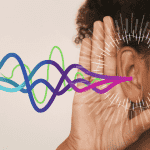When shopping for hearing aids, one of the most critical questions would come up. Why is it important to wear two hearing aids instead of one, and is it necessary to wear two hearing aids? These questions are best answered by an audiologist who can help you with your hearing needs. Read on to learn more about the importance of wearing two hearing aids.
Highly Recommended to Wear Two Hearing Aids
Your audiologist will share with you that wearing two hearing aids is highly recommended. The reason for that is that you will hear twice as well with two ears instead of one.
Your brain perceives and processes information from both sides, and it is much easier for the brain to process information when given information from both ears instead of one.
Auditory Deprivation
When the ears don’t get the auditory stimulation it needs to hear better, over time, this could lead to auditory deprivation. Simply, it means that the lack of auditory stimuli can cause the auditory nerve to lose its ability to decode information for the brain to better understand speech in various listening situations.
When wearing two hearing aids, the auditory nerves continue to decode information effectively and send such information to the brain. When wearing one device, the brain tries to compensate for what was decoded from one ear, but over a period of time, it could cause fatigue.
A research study that was published in the Journal of the American Academy of Audiology studied word recognition abilities in individuals wearing one hearing aid compared to individuals with two hearing aids. The results illustrated that individuals with one hearing aid do not hear as well compared to individuals with two hearing aids, as those with one hearing aid had trouble recognizing words.
Brain Stimulation
When wearing two hearing aids, you’re giving your brain the stimulation it needs to stay strong and healthy. Research has shown that when the brain does not get auditory stimulation due to untreated hearing loss, parts of the brain can weaken and then atrophy over a period of time.
When parts of the brain become atrophied, it may lead to dementia, such as memory loss, loss of critical thinking, or even social abilities. Thus, it is vital to stimulate your brain with two hearing aids fully.
Better Sound Quality with Two Hearing Aids
When wearing hearing aids, sound quality, including music, radio, television, speech in quiet, or even speech in a noisy environment, sounds better compared to wearing one hearing aid. With two hearing aids, speech can be better understood as it sounds clearer and easier to understand. With one hearing aid, depending on the localization of speech, the individual may miss a few words.
Better Localization
When wearing two hearing aids, you may experience better localization ability. Sounds such as sirens or when someone is yelling from another room may be better localized. It would be challenging to determine where the sound source is coming from with one hearing aid, especially for safety purposes.
When is it okay to wear one hearing aid?
It is okay to wear one hearing aid if the individual has normal hearing in one ear and a hearing loss in the other ear.
Suppose a person cannot tolerate two hearing aids due to stimuli overload. In that case, it is better to wear at least one hearing aid in order to provide auditory stimuli to the brain to reduce the risk of dementia.
When there’s pain or discomfort in one ear, it’s better not to wear the hearing aid in that ear. Just make sure to contact the ENT Physician to evaluate the ear further so that a hearing aid can be worn again.
Conclusion
It is essential and highly recommended to wear hearing aids in both ears. Wearing hearing aids in both ears may allow you to feel an overall sense of balanced hearing, better localization, and a better understanding of speech in various listening situations.
However, if two hearing aids cannot be tolerated, one hearing aid is better than none. We only have one brain, so let’s keep it intact by providing auditory stimulation. If you’re unsure you have hearing loss, contact your ENT Physician or Audiologist for a further hearing evaluation and hearing aid consultation.




